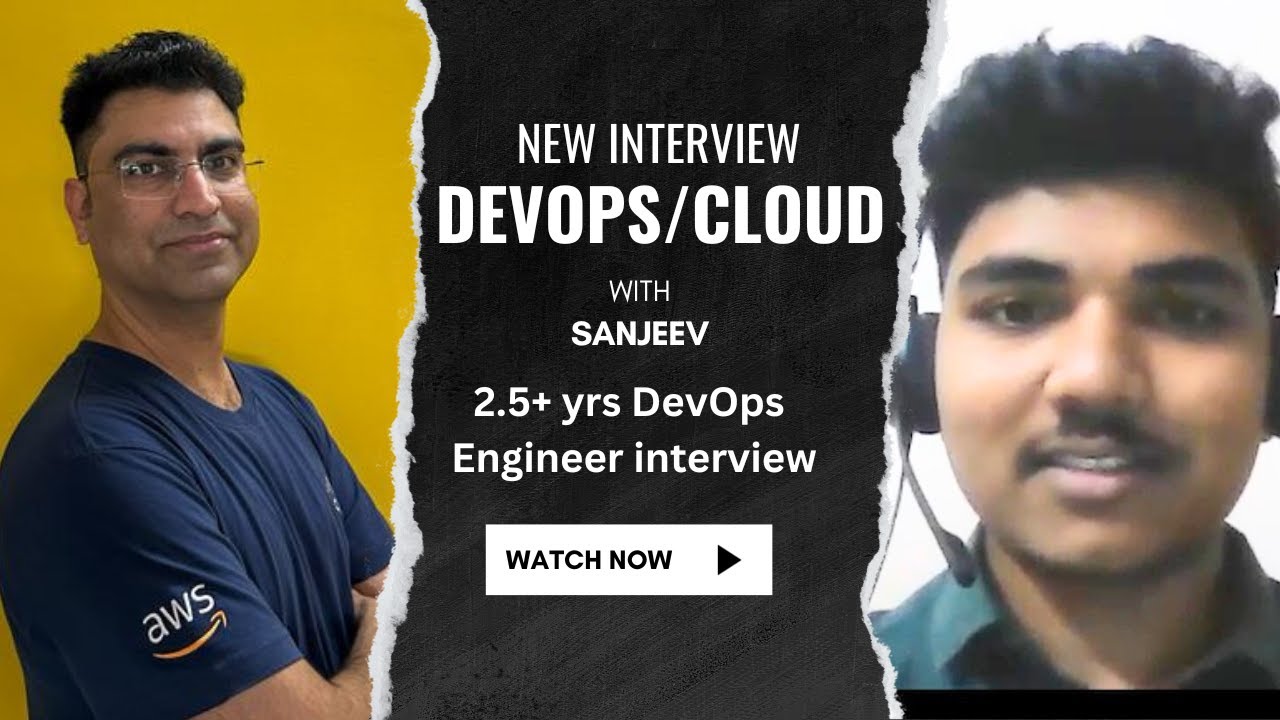Telecommunications Engineers Jobs Interview Questions & Answers | Everyday English Dialogues
Summary
TLDRIn this interview with Brian Mills, a telecommunications engineer with a background in electrical engineering, he discusses his experience in network design, optimization, and troubleshooting. He emphasizes the importance of collaboration, technical skills like network protocols and wireless technologies, and his approach to resolving network issues, such as outages and congestion. Brian also shares his long-term career goals, which include advancing communication technologies and taking on leadership roles. His insights provide a comprehensive look at the evolving field of telecommunications engineering.
Takeaways
- 😀 Brian Mills holds a bachelor's degree in electrical engineering with a specialization in telecommunications and has 3 years of experience in the field, focusing on network design and optimization.
- 😀 A telecommunications engineer's main responsibilities include designing, developing, and maintaining communication systems and networks, while also troubleshooting and optimizing network performance.
- 😀 Essential technical skills for a telecommunications engineer include expertise in networking protocols, network design tools, and familiarity with emerging technologies like 5G and fiber optics.
- 😀 Brian has hands-on experience with networking technologies such as TCP/IP, routing protocols, and wireless networks, and stays up to date through professional development.
- 😀 Effective communication, active listening, and collaboration are key for teamwork in the telecommunications industry. Brian has experience working with cross-functional teams to achieve project goals.
- 😀 Brian shared an example of handling a major network outage due to hardware failure, where he led a team to restore network functionality by coordinating with vendors and implementing temporary solutions.
- 😀 When resolving network congestion, Brian focuses on analyzing traffic patterns, identifying bottlenecks, and optimizing network infrastructure with techniques like traffic shaping and load balancing.
- 😀 Brian's approach to network congestion also involves ensuring quality of service by prioritizing critical traffic and fine-tuning routing protocols for better distribution of traffic.
- 😀 Brian maintains open communication with stakeholders during network congestion issues, ensuring transparency and managing expectations for resolution timelines.
- 😀 Brian's long-term career goal is to contribute to advancing communication technologies like 5G, IoT, and cloud computing, and to take on leadership roles where he can mentor junior engineers.
Q & A
Can you tell me a little about your background in telecommunications engineering?
-My name is Brian Mills, and I have a bachelor's degree in electrical engineering with a specialization in telecommunications. I have been working in the telecommunications industry for the past 3 years, primarily focusing on network design and optimization. During this time, I have gained experience working with wireless networks, fiber optics, and satellite communications.
What is the role of a telecommunications engineer, and what are your primary responsibilities?
-As a telecommunications engineer, my primary responsibility is to design, develop, and maintain communication systems and networks. This includes tasks such as analyzing requirements, planning network infrastructure, implementing solutions, and ensuring smooth operation. Telecommunications engineers also play a key role in troubleshooting network issues, optimizing performance, and staying current with industry advancements.
What technical skills do you believe are essential for a telecommunications engineer?
-Essential technical skills for a telecommunications engineer include a strong understanding of networking protocols such as TCP/IP, routing protocols, and network security. Proficiency in network design tools like Cisco Packet Tracer or GNS3 is also important. Knowledge of wireless technologies such as LTE and 5G, as well as experience with fiber optics, are valuable assets in this field.
Can you describe your experience working in a team environment as a telecommunications engineer?
-Collaboration and teamwork are critical in the telecommunications industry. I have worked closely with cross-functional teams, including network architects, project managers, and technicians. Effective communication, active listening, and a collaborative mindset are key for successful teamwork. I actively contribute ideas, seek input from others, and ensure everyone is aligned on project goals to achieve efficient results.
Have you encountered any challenging situations in your previous work? How did you handle them?
-Yes, one instance involved a major network outage affecting a large number of users. The cause was a hardware failure in a critical network node. I gathered the team, assessed the situation, and quickly devised a plan to restore network functionality. We coordinated with equipment vendors, implemented temporary solutions to minimize disruption, and restored the network within the expected time frame through effective troubleshooting and communication.
What steps would you take to resolve network congestion issues?
-To resolve network congestion, I first analyze network performance metrics and traffic patterns to identify congestion points. I assess whether outdated equipment or insufficient bandwidth is causing the issue. Solutions may involve implementing quality of service mechanisms to prioritize critical traffic, fine-tuning routing algorithms, or applying traffic shaping techniques. Maintaining clear communication with stakeholders throughout the process is also essential.
How do you ensure that network infrastructure is optimized for peak performance?
-I ensure optimal network performance by regularly evaluating network infrastructure, monitoring performance metrics, and addressing any potential bottlenecks. I collaborate with network architects and administrators to optimize routing protocols and, if needed, expand network capacity. Additionally, I stay updated on the latest industry standards and advancements to keep the network at peak performance.
How do you handle pressure when faced with technical issues or urgent situations?
-I remain calm under pressure and focus on solving the issue at hand. In situations such as network outages or congestion, I prioritize quickly identifying the root cause and developing a plan of action. I keep communication lines open with team members and stakeholders to ensure everyone is aligned and informed. This approach helps maintain control over the situation and minimize disruption.
Can you explain your approach to managing network optimization and expansion?
-When managing network optimization and expansion, I first assess the current network's performance and identify areas for improvement. This includes evaluating hardware, software, and traffic flow. Based on this analysis, I collaborate with stakeholders to implement upgrades, whether through new technologies, equipment, or adjustments to routing protocols. Continuous monitoring and adjustment are key to ensuring long-term success.
What are your long-term career goals as a telecommunications engineer?
-My long-term goal is to contribute to the advancement of communication technologies. I aim to be involved in developing and integrating emerging technologies such as 5G, IoT, and cloud computing into existing networks. I also see myself taking on leadership roles where I can mentor and guide junior engineers, sharing my knowledge and helping drive innovation in the telecommunications industry.
Outlines

此内容仅限付费用户访问。 请升级后访问。
立即升级Mindmap

此内容仅限付费用户访问。 请升级后访问。
立即升级Keywords

此内容仅限付费用户访问。 请升级后访问。
立即升级Highlights

此内容仅限付费用户访问。 请升级后访问。
立即升级Transcripts

此内容仅限付费用户访问。 请升级后访问。
立即升级浏览更多相关视频

Excellent Devops and Cloud Engineer Interview questions for ~2 Year Experience including feedback

Software Engineer - Career Exploration for Teens!

NOC Engineer interview questions | Network Engineering

cese assignment

Superb 1 Year Experienced DevOps Cloud Engineer Live Interview #cloud #interview #devopsengineer

Java Spring Boot 3 Years Experience Interview
5.0 / 5 (0 votes)
